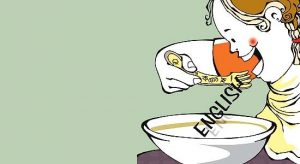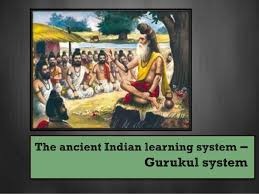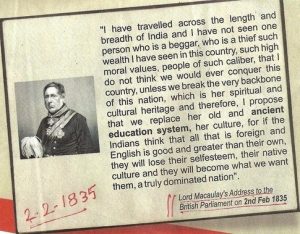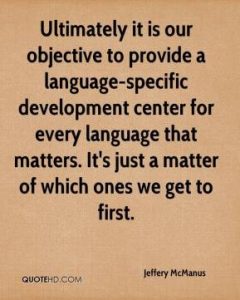Lord Macaulay was right in saying medium of instructions in education system can change the culture of nation
 Education is the most powerful tool to change mindset from an older setting to new one. It has the power to change the way people execute. Progressive nations in the world invest in education of teachers and youth to empower a new generation of leaders. Nelson Mandela said that ‘Education is the most powerful weapon which you can use to change the world.’ Education is not all about studying to get good marks. It is a medium to discover new things. It helps us understand new concepts; new skills, new meaning, and new vocabulary thus increase our awareness. An educated person has the ability to differentiate between right and wrong or good and bad. It is the most primary responsibility of a society to educate its citizens.
Education is the most powerful tool to change mindset from an older setting to new one. It has the power to change the way people execute. Progressive nations in the world invest in education of teachers and youth to empower a new generation of leaders. Nelson Mandela said that ‘Education is the most powerful weapon which you can use to change the world.’ Education is not all about studying to get good marks. It is a medium to discover new things. It helps us understand new concepts; new skills, new meaning, and new vocabulary thus increase our awareness. An educated person has the ability to differentiate between right and wrong or good and bad. It is the most primary responsibility of a society to educate its citizens.
The Asia-Pacific region is home to two-thirds of the world’s 370 million indigenous peoples, speaking 2300 of the world’s 7000 languages. 70 ethnic groups live in Thailand, and neighboring countries such as Laos, Vietnam, and Myanmar have more. Do you know that countries not known for their cultural diversity, such as Taiwan and Brunei, each boast more than a dozen indigenous groups speaking their own unique languages? The Asian continent consists of multilingual countries. India is one such classic example of being a multi lingual nation with one billion people in 28 states and 7 union territories with more than 114 languages.
 If children study in their mother tongue, they grasp better. Suppression of indigenous languages and cultures often results in the exclusion of indigenous peoples from basic social services, such as health care and education, lack of access to land and resources, and limited employment opportunities. This is particularly true with education. If children are forced to study unfamiliar concepts in a foreign language which they don’t understand, they can only do rote learning but don’t grasp the grass root of concepts. Native children fare worse than their non-indigenous peers in terms of school enrolments, retention rates, literacy levels and academic achievement. This is a fact noted by UNESCO.
If children study in their mother tongue, they grasp better. Suppression of indigenous languages and cultures often results in the exclusion of indigenous peoples from basic social services, such as health care and education, lack of access to land and resources, and limited employment opportunities. This is particularly true with education. If children are forced to study unfamiliar concepts in a foreign language which they don’t understand, they can only do rote learning but don’t grasp the grass root of concepts. Native children fare worse than their non-indigenous peers in terms of school enrolments, retention rates, literacy levels and academic achievement. This is a fact noted by UNESCO.
For example in Vietnam, 83 percent of Hmong men and 97 percent of Hmong women are illiterate. This is why the UN Declaration on the Rights of Indigenous Peoples (2007) emphasized the right of indigenous peoples to receive education “in their own languages” and “in a manner appropriate to their cultural methods of teaching and learning.”
Macaulayism is the conscious policy of reducing original culture of a nation through the planned substitution of the foreign culture by a colonizing power through the education system. The term is derived from the name of British politician Thomas Babington Macaulay (1800-1859). He was actively involved in the introducing English language as the medium of instruction in higher education in India. The term Macaulayism is usually used in a belittling fashion, and it suggests one’s disloyalty to one’s country and one’s heritage. The Hindu senior citizens often blame Macaulay for producing a generation of Indians not proud of their heritage. They take pride of speaking English.
The following scanned copy of Lord Macaulay’s speech is self explanatory. It does not need any illumination further.
 Humans communicate with one another using amazing array of languages, each differing from the next in numerous ways; in style of expression, pronunciation, grammar and meaning. One very settled question therefore arises, and that is do the languages we speak shape the way we see the world, the way we think, and the way we live our lives? Do people who speak different languages think differently simply because they speak different languages? Does learning new languages change the way we think? Does a multilingual person think differently when speaking different languages? The answer is YES. This point of view has occupied a whole lot of philosophers, anthropologists, governments, scholars, linguists, and psychologists, and they have been working on important inferences for politics, law and order, and religion of course.
Humans communicate with one another using amazing array of languages, each differing from the next in numerous ways; in style of expression, pronunciation, grammar and meaning. One very settled question therefore arises, and that is do the languages we speak shape the way we see the world, the way we think, and the way we live our lives? Do people who speak different languages think differently simply because they speak different languages? Does learning new languages change the way we think? Does a multilingual person think differently when speaking different languages? The answer is YES. This point of view has occupied a whole lot of philosophers, anthropologists, governments, scholars, linguists, and psychologists, and they have been working on important inferences for politics, law and order, and religion of course.
 The language in which we learn and study so many aspects of life touches on nearly all facets of our thinking, our decision making and the way we grow in our life. Yet, despite of constant considerations and debates, very little empirical work is done on these questions until recent times. For a long time, the idea that language might shape thought was considered simply wrong. One research on this topic at MIT has helped reopen this question. For the purpose of research data was collected from all around the world; from China, Greece, Chile, Indonesia, Russia, and Aboriginal Australia. The research has proved that people who speak different languages do indeed think differently and that even usage of grammar can profoundly affect how we see the world. Thus, language is a unique human gift. It is the central to our experience of being human. We must appreciate its role in constructing our mental ability, our existence, and to understand the very nature of humanity. Language is so elementary to our experience of life. It is as deeply ingrained in us as a part of being human. It’s so sad that we abuse the usage of language for committing crime, for doing so many wrong things. That’s the power of language; it actually shapes our thoughts.
The language in which we learn and study so many aspects of life touches on nearly all facets of our thinking, our decision making and the way we grow in our life. Yet, despite of constant considerations and debates, very little empirical work is done on these questions until recent times. For a long time, the idea that language might shape thought was considered simply wrong. One research on this topic at MIT has helped reopen this question. For the purpose of research data was collected from all around the world; from China, Greece, Chile, Indonesia, Russia, and Aboriginal Australia. The research has proved that people who speak different languages do indeed think differently and that even usage of grammar can profoundly affect how we see the world. Thus, language is a unique human gift. It is the central to our experience of being human. We must appreciate its role in constructing our mental ability, our existence, and to understand the very nature of humanity. Language is so elementary to our experience of life. It is as deeply ingrained in us as a part of being human. It’s so sad that we abuse the usage of language for committing crime, for doing so many wrong things. That’s the power of language; it actually shapes our thoughts.
The question whether or not Lord Macaulay proclaimed in the British Parliament that the only way to rule India is to make the Indian culture seem inferior is debated even after two centuries. But, the fact remains that the original culture of India, its value system and its richness of thoughts did change radically with the introduction of English language.












































